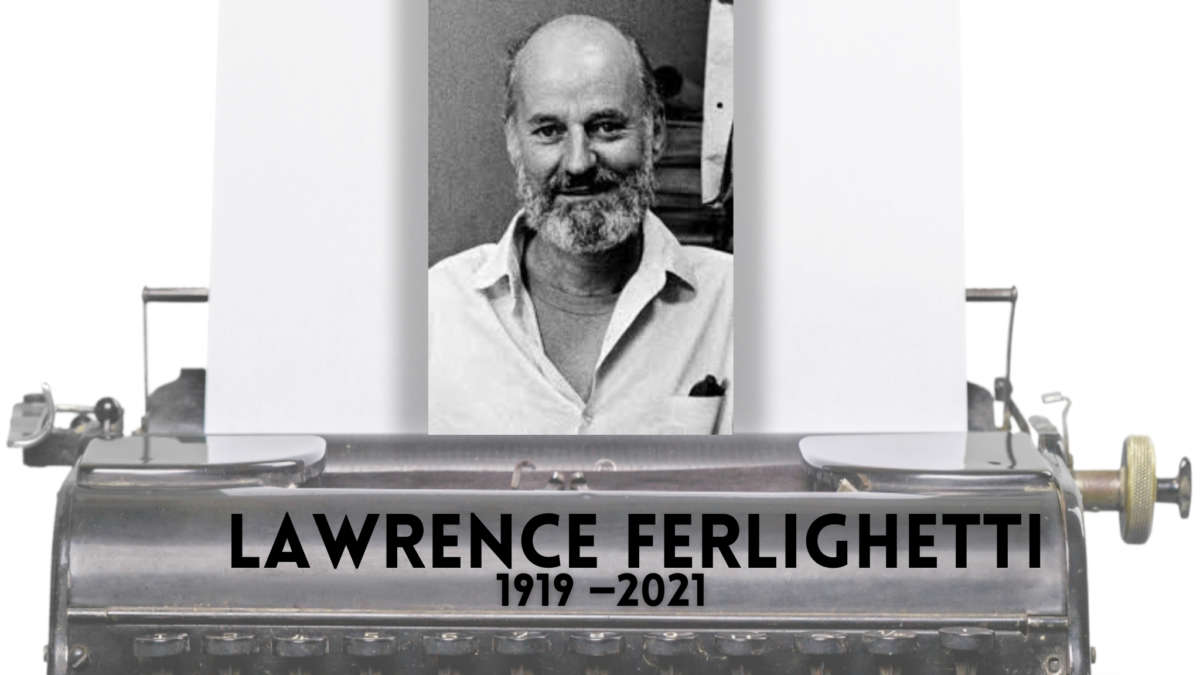Lawrence Ferlinghetti, who died on Monday at the grand age of 101, left a legacy that supersedes a simple definition. He was a writer, a mentor, a business owner and an advocate, among many other acclaims. He believed in the power of “poetry as insurgent art,” a phrase he used to entitle one of his collections of poems. Ferlinghetti wrote A Coney Island of the Mind, a poetry collection that paves the way for the newfound Beat movement, and a sequel, A Far Rockaway of the Heart. Besides his personal writings, he was also a publisher and the owner of the celebrated San Francisco bookstore City Lights. City Lights opened in 1953 and quickly became, by his own description, a “literary meeting place.”
The New York Times identifies him as “a poet, publisher and political iconoclast who inspired and nurtured generations of San Francisco artists … The spiritual godfather of the Beat movement.” He became a patron of the arts scene in his city, a benevolent yet firebrand protector of free speech and creative expression. He never considered himself particularly trendsetting, however, even while he published works by Allen Ginsberg, Jack Kerouac, Gregory Corso and Michael McClure. In fact, he was the one to publish Ginsberg’s infamous poem, “Howl.” The most potentially interesting aspect of all this now, Mr. Ferlinghetti was arrested for, in doing so, “willfully and lewdly” printing “indecent writings.” He was cleared, naturally, and his cred only grew thanks to the experience.
Ferlinghetti loved to provoke and incite discussion, be it in politics, art, or preferably both. He never feared a good controversy if he thought it served a greater purpose; The Washington Post calls him “intensely private and fiercely political.” Meanwhile, his pen produced beautifully emotional pieces, with luminous lines such as “poetry is the shortest distance between two humans.” He kept breaking new ground throughout the years, and was awarded the Poetry Society of America’s Frost Medal in 2003.
His backstory is rife with tales that provide a very reasonable explanation for his life’s trajectory. His father died before he was born, while his mother suffered intensely and entered a psychiatric hospital before he was two years old. A decidedly unusual childhood followed, with stints in Paris, an orphanage, a private high school in Massachusetts, and petty crime. Nonetheless, he attended the University of North Carolina, Chapel Hill — because his idol, Thomas Wolfe, did first. After spending WWII serving in the Navy, he pursued English Literature at the Masters level at Columbia University then bopped around Paris. He finally moved out to San Francisco and built a life for himself among the free-spirited artistic community there, got married, had kids, and opened the bookstore that would define his life.
Within that domain, he fought for books, poets, and his own writings to great success. An Esquire article, “7 Essential Books That Lawrence Ferlinghetti Wrote or Published,” offers a solid primer on his prolific career. In 1998 he was named the first poet laureate of San Francisco; in 2005 the National Book Foundation cited his “tireless work on behalf of poets and the entire literary community for over 50 years.” His touchstone, City Light Books, lives on, despite nearly going under due to the pandemic (it was saved by its devoted community). The now-landmark bookstore tweeted a message about his passing, saying “‘The greatest poem is lyric life itself.’ Our poet and hero, Lawrence Ferlinghetti, passed away on Monday, February 22nd, in the evening. We love you, Lawrence.” He will live on through the vast impact he left on our current cultural and literary scenes.





